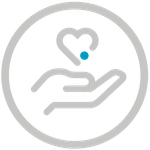Autoimmunity and health
quantifying diagnosis
Garvan-Weizmann Centre for Cellular Genomics
Garvan Institute of Medical Research
Project background
Did you know around 12% of Australians suffer from an autoimmune disease? And that over 80% of them are women? Symptoms are often broad and overlapping with other disorders, which makes diagnoses tough. As a direct result, diagnostic journeys can be long and frustrating. Anecdotally, we are aware that self medication and self diagnosis are rife in the autoimmune community, and that this journey can impact (or be impacted by) mental health. Regrettably, this information hasn’t reached the research community. This presents a real problem, as some of these factors can change the results of studies, which can make interpretation confusing, or even worse, wrong.
We think that needs to change. To do that, we have designed a survey to capture the experiences of the Australian Spoonie community and we hope you help us gather this information - the more we can collate, the clearer any trends around medication, mental health and diagnosis will be. So, please help us document our collective life stories and write them into the scientific literature, so patients can be treated more adequately.
If you are:
- Currently residing in Australia
- 18 years old or older
- have any chronic illness (if not on the list, please put into Other section), including
- ME/CFS
- MS
- Coeliac
- EDS
- POTS
- or are currently healthy
- do not have a history of a psychological illness or condition such as to interfere with the patient’s ability to understand the requirements of the study or preclude autonomy to sign legal documents
then add your voice to patient advocacy by filling out the
Survey
Survey is open for participation until June 2022. Please share with healthy controls and chronic folk alike, the further this project reaches the stronger any trends we can report will be. Thank you!
Project aims
in a nutshell
Collate how patients handle their illness
Document how patients are treated
Publish community trends & make accessible
Autoimmune disorders
Our immune system protects our bodies against pathogens. Pathogens are excellent at rapidly changing and adapting (think influenza seasons and SARS-CoV-2 variants), so our immune system has to rapidly adapt too to maintain our defences. However, this can go wrong and rather than targeting foreign invaders, the immune system can start attacking our own cells. This causes inflammation, tissue and organ damage, which is referred to as autoimmunity. There are over 100 autoimmune disorders (e.g. lupus, rheumatoid arthritis, multiple sclerosis), which can affect any part of our body and cause systemic, debilitating or even fatal illness. Symptoms can vary between patients with the same illness, or be similar despite patients having different illnesses. This makes diagnosis difficult, time intensive and fraught with uncertainty.

Researchers
Dr. Sara Ballouz

My central scientific interest has been to understand the genetic architecture of disease. With data from the genome, transcriptome, epigenome and proteome increasing exponentially, robust tools and practices need to be established to analyze this deluge, in particular if to be applied to personalized medicine. The group’s current focus is on exploring and understanding X-linked disorders and sex differences in disease, with a particular interest in autoimmunity.
Dr. Anna Liza Kretzschmar

I am a post doc in Sara’s Gene Networks in Disease group. My interest is in the underlying genetic mechanisms of autoimmunity and why the prevalence of patients are female, as well a bridging patient advocacy and medical research. I am a bioinformatician living with ME/CFS, fibromyalgia and a compromised immune system. As such I am aware of the inadequate treatment chronically ill folk often receive from the medical community and I want to use my training to help improve my fellow patients' lives and diagnostic journeys.
Garvan Institute of Medical Research

Our mission is to harness all the information encoded in our genome to better diagnose, treat, predict and prevent disease. Garvan’s research has global impact. Our scientists pioneer discoveries across four intersecting research themes. We lead the field in medical genomics, epigenetics, and cellular genomics; cancer; diseases of immunity and inflammation; and diseases of ageing affecting bone, brain and metabolism.
Garvan-Weizmann Centre for Cellular Genomics
The Garvan-Weizmann Centre for Cellular Genomics is a research centre and service provider focused on understanding how our inherited DNA sequence is copied and put into action in each of the 3 trillion nucleated cells of our body. We reveal the genomic details of individuals cells to better help doctors diagnose and treat diseases.
By bridging the information gulf between genomic DNA sequence information and standard clinical measures of tissue and organ pathology, cellular genomics is making Garvan’s genomics and epigenetics research even more beneficial to everyone’s health.
Contact
- s.ballouz@garvan.org.au
- 384 Victoria St, Darlinghurst, NSW 2010
- Enter Kinghorn Cancer Centre and inquire with concierge
- Monday to Friday
9am to 5pm - Tweets
- Instagram stories










